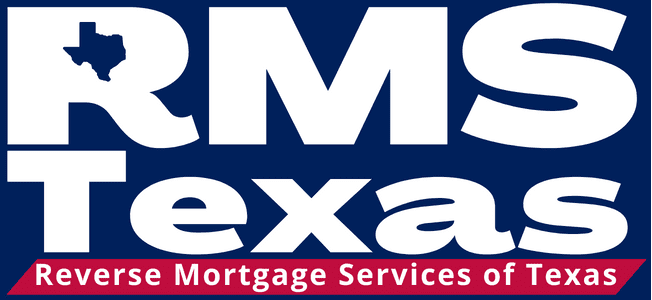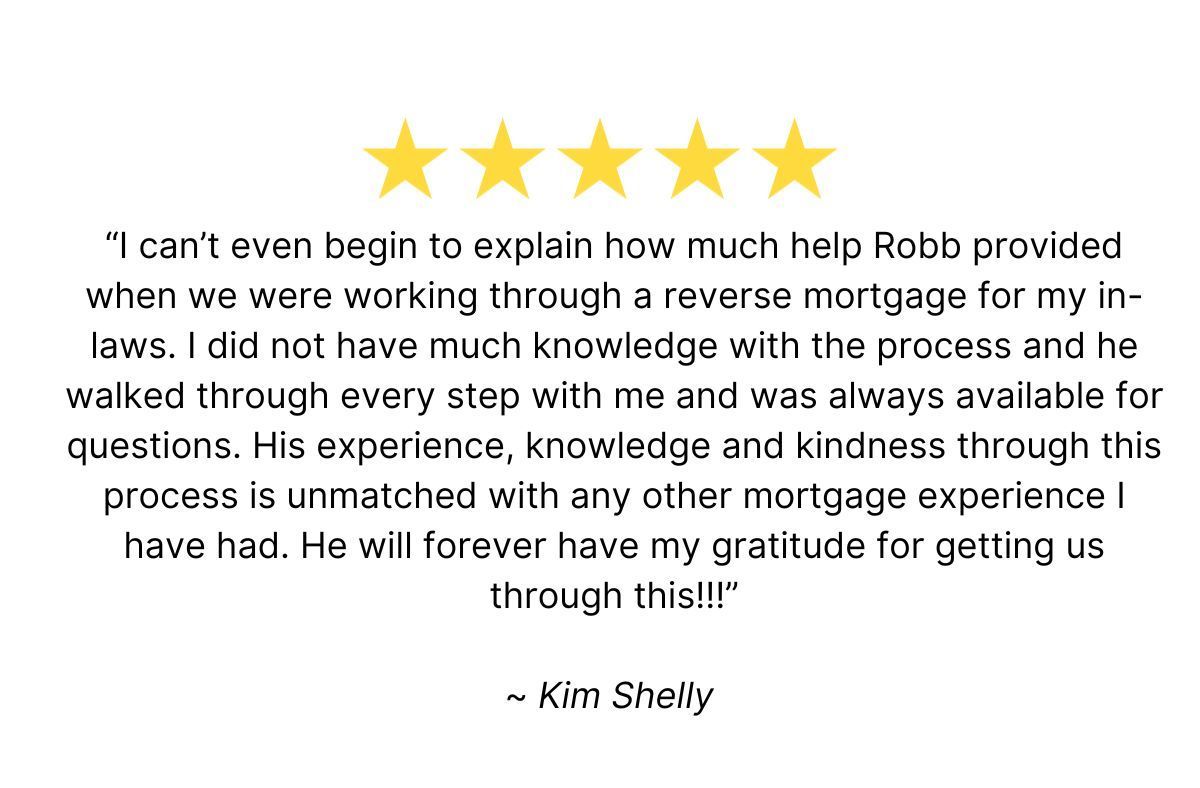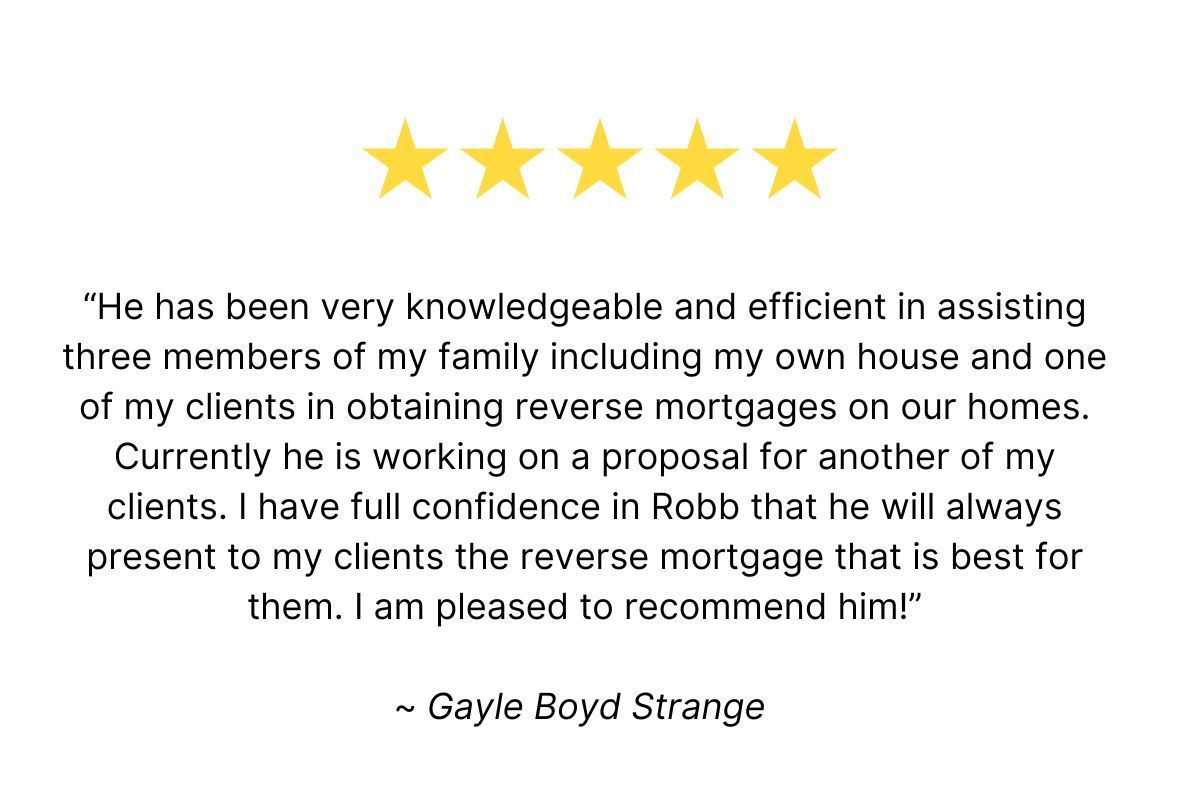"Your Home May Hold the Key to a More Comfortable Retirement"
Robb Hamilton, Texas Reverse Mortgage Specialist
Looking to free up your monthly mortgage payment? Put that money back in your pocket...
Reverse Mortgages in Texas

About Texas Reverse Mortgages
Reverse mortgages are no longer the loan of last resort for seniors. In fact, many savvy retirees and their financial planners are turning to home equity as a solid tool in the retirement toolbox.
If you're 62 or older and have at least 50% home equity, you could qualify for a reverse mortgage without having to pay a monthly mortgage payment.
Robb has access to a variety of programs which will usually be your most cost effective options. Click below to learn more about reverse mortgages.
Meet Robb Hamilton
Robb is passionate about helping Seniors stay in their homes during their golden years. He specializes in Reverse Mortgages, including HECM for purchase and Home Equity.
With a Reverse Mortgage, Seniors can use the money for whatever they wish, as long as they remain in the home, and continue to pay property taxes, homeowners insurance & HOA dues. Money can be used for things such as medical bills, travel, grandchildren education, purchase of a vacation home, in-home care, home improvements – whatever is on their list.
Additionally, Robb can save you money compared to reverse mortgage competitors. Learn why Robb is passionate about helping seniors release home equity for a better retirement.

Who We Help
In this short video you'll meet Mary who is retired and living on a fixed income and her daughter. Together, they learn about a reverse mortgage.
Robb's Reviews
I truly appreciate every review I receive from my wonderful clients. Below are just a few of my 5 star reviews.
If you would like to leave me a review, click the button below to bring up my Google Business page. Every review helps me reach more seniors. Thank you very much!
A Comprehensive Guide to Reverse Mortgages in Texas
For many Texas homeowners, a reverse mortgage can be a powerful tool to unlock the equity in their home and achieve a more financially secure retirement. But what exactly is a reverse mortgage, and how does it work? This guide will walk you through everything you need to know. A Guide to
Reverse Mortgage Texas
What is a Reverse Mortgage?
A reverse mortgage is a unique type of home loan that allows homeowners aged 62 and older to convert a portion of their home equity into cash. Unlike a traditional "forward" mortgage, where you make monthly payments to a lender to build equity, a reverse mortgage allows you to receive payments from the equity you've already built.
The loan is repaid when the last surviving borrower sells the home, moves out for more than 12 consecutive months, or passes away. This means you can continue to live in your home and maintain ownership without having to make monthly mortgage payments.
How Does a Reverse Mortgage Compare to Other Financial Products?
It's important to understand how a reverse mortgage differs from other common financial products.
| Feature | Reverse Mortgage | Traditional Mortgage | Home Equity Line of Credit ( HELOC) |
|---|---|---|---|
| Monthly Payments | Not required | Required | Required (interest-only or principal and interest) |
| Loan Purpose | To access home equity | To purchase a home | To access home equity for various needs |
| Repayment | When the borrower leaves the home | Over a set term (e.g., 15 or 30 years) | During a set draw period, followed by a repayment period |
| Eligibility | Age 62+, significant home equity | Based on credit score, income, and debt-to-income ratio | Based on credit score, income, and home equity |
The Reverse Mortgage Process in Texas:
A Step-by-Step Guide
Navigating the reverse mortgage process can seem daunting, but it can be broken down into a few simple steps.
- HUD-Approved Counseling: The first step is to meet with a HUD-approved counselor. This independent, third-party counseling session is designed to ensure you understand the loan and its implications. The counselor will discuss your financial situation, the pros and cons of a reverse mortgage, and alternative options.
- Application and Documentation: Once you've completed counseling, you'll work with a reverse mortgage specialist like Robb Hamilton to complete the application. You'll need to provide documentation such as your ID, Social Security number, and property information.
- Home Appraisal: An independent appraiser will determine the current market value of your home. This appraisal is a key factor in determining how much you can borrow.
- Underwriting and Approval: The lender's underwriting team will review your application, appraisal, and financial assessment to ensure you meet all the eligibility requirements.
- Closing: Once your loan is approved, you'll sign the final loan documents. This is when you'll choose how you want to receive your funds.
- Receiving Your Funds: After a three-day right of rescission period, you'll receive your funds according to the payment plan you selected.
Types of Reverse Mortgages
There are two main types of reverse mortgages available to Texas homeowners:
- Home Equity Conversion Mortgage (HECM): This is the most common type of reverse mortgage and is insured by the Federal Housing Administration (FHA). HECMs are a popular choice because they offer several consumer protections, including the non-recourse feature, which means you or your heirs will never owe more than the value of the home.
- Proprietary Reverse Mortgages: These are private loans offered by financial institutions. They are not FHA-insured and are often used for higher-value homes. The lending limits for proprietary reverse mortgages can be significantly higher than the FHA limit.
- Reverse Jumbo Loan: offer Texas retirees a way to tap into their home equity without monthly payments, providing a savvy home equity solution tailored for high-value properties. Understanding what a Reverse Jumbo Loan is and how it works can help homeowners consider if this option fits their retirement needs.
The Pros and Cons of a Reverse Mortgage
A reverse mortgage can be a great financial tool for some, but it's not right for everyone. It's important to weigh the pros and cons carefully.
Pros:
- Eliminate Monthly Mortgage Payments: This can significantly improve your monthly cash flow.
- Stay in Your Home: You can continue to live in your home and maintain ownership.
- Tax-Free Funds: The money you receive from a reverse mortgage is generally not considered income and is therefore tax-free. (Consult with a tax advisor for your specific situation).
- Flexible Payout Options: You can choose to receive your funds as a lump sum, a line of credit, monthly payments or a combination of these.
Cons:
- Loan Balance Grows Over Time: The loan balance increases over time as interest and fees are added to the loan.
- Reduces Home Equity: A reverse mortgage will reduce the amount of equity you have in your home, which means there will be less for you or your heirs in the future.
- Can Affect Eligibility for Needs-Based Benefits: If you receive benefits like Medicaid or SSI, the funds from a reverse mortgage could affect your eligibility if not handled properly.
Is a Reverse Mortgage Right for You?
The decision to get a reverse mortgage is a personal one. It depends on your individual financial situation, your retirement goals, and your long-term plans. The best way to determine if a reverse mortgage is right for you is to speak with a qualified and experienced reverse mortgage specialist.
Robb Hamilton is here to help you understand your options and make an informed decision. Schedule a free, no-obligation consultation today to get the personalized advice you need.
Texas homeowners aged 62 and older are increasingly discovering that their most valuable asset—their home—can be the key to a more comfortable and financially secure retirement. With home values across the Lone Star State continuing to appreciate, particularly in major metropolitan areas like Dallas, Houston, and Austin, many seniors are sitting on substantial equity that could transform their retirement years.
A reverse mortgage allows Texas homeowners to convert a portion of their home equity into cash without selling their home or taking on monthly mortgage payments. However, navigating the reverse mortgage landscape in Texas requires understanding both federal regulations and state-specific considerations that can impact your decision.
Check out our full Guide here - The Complete Guide to Reverse Mortgages in Texas: What Every Homeowner Should Know in 2025








